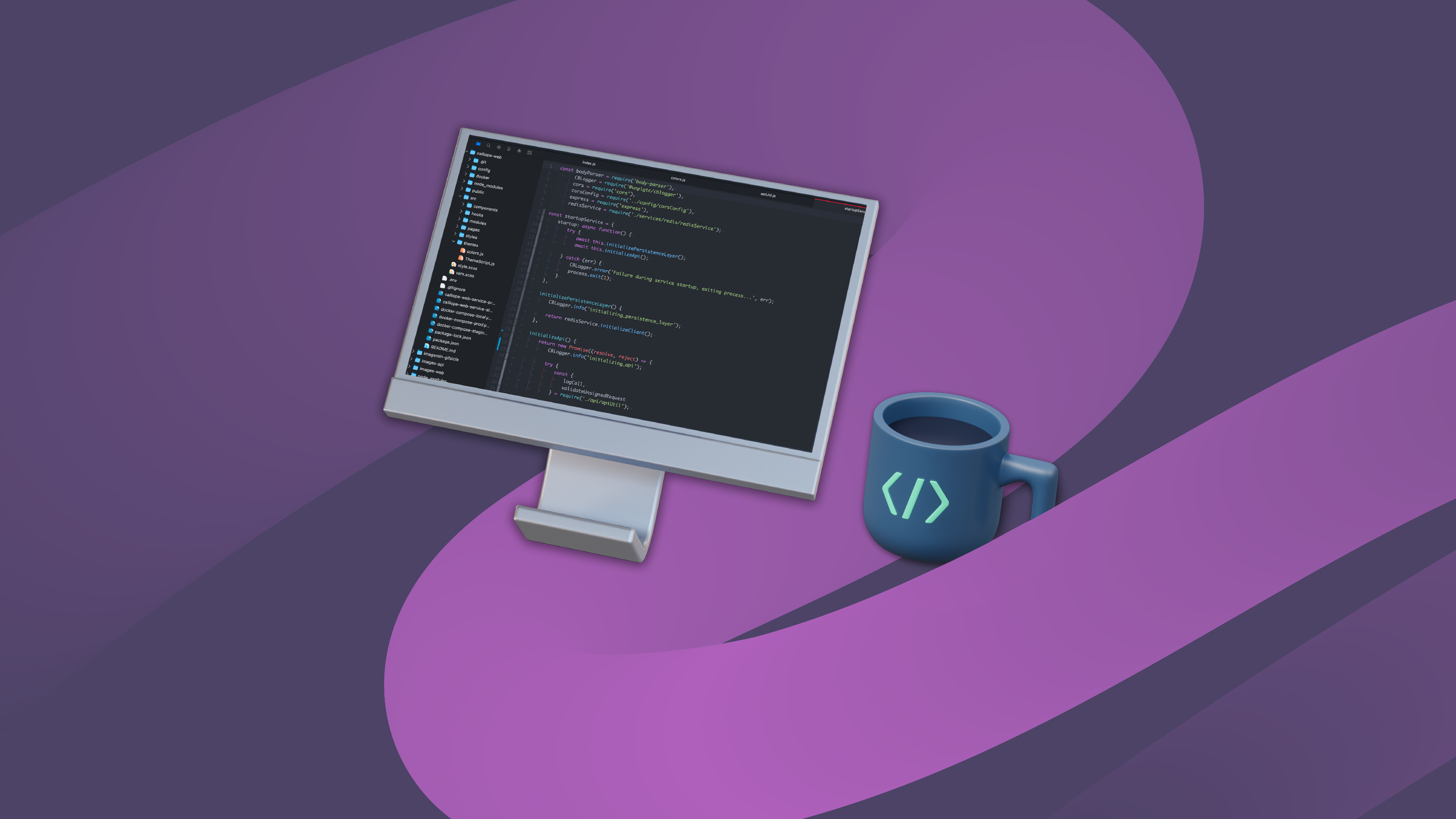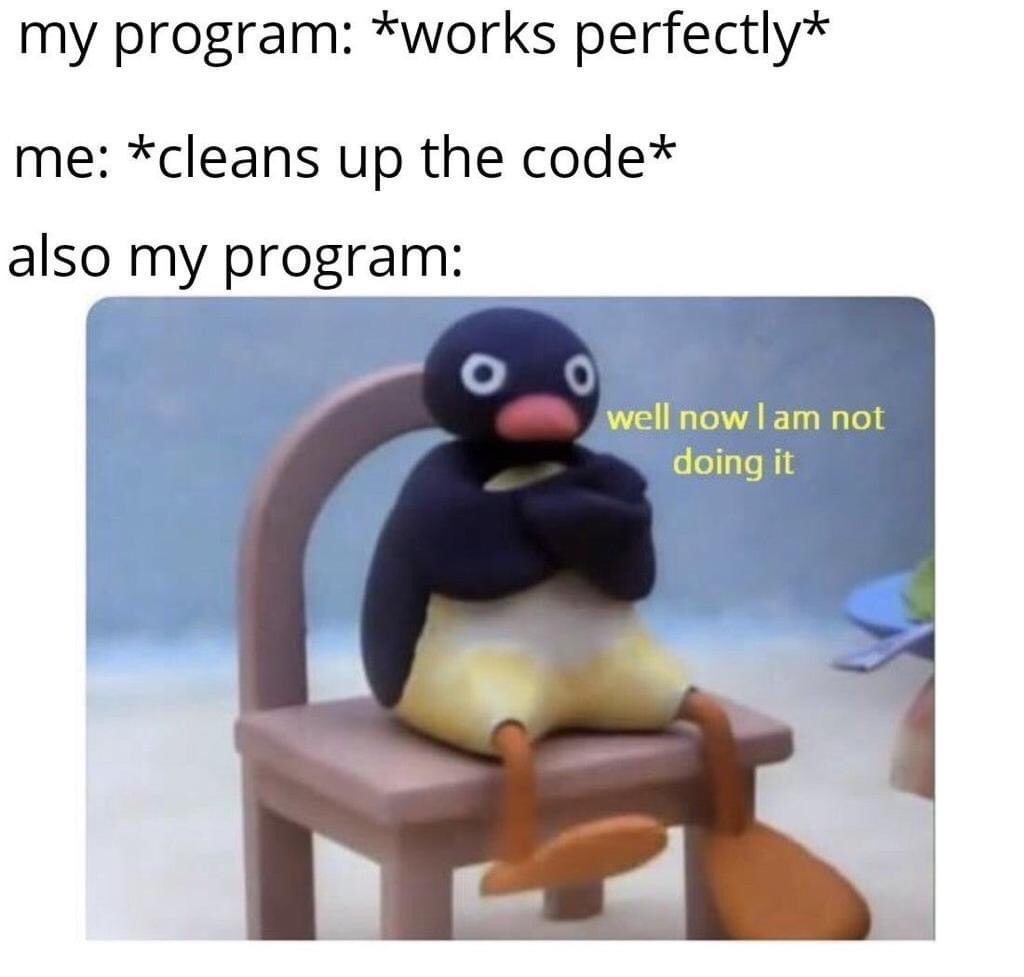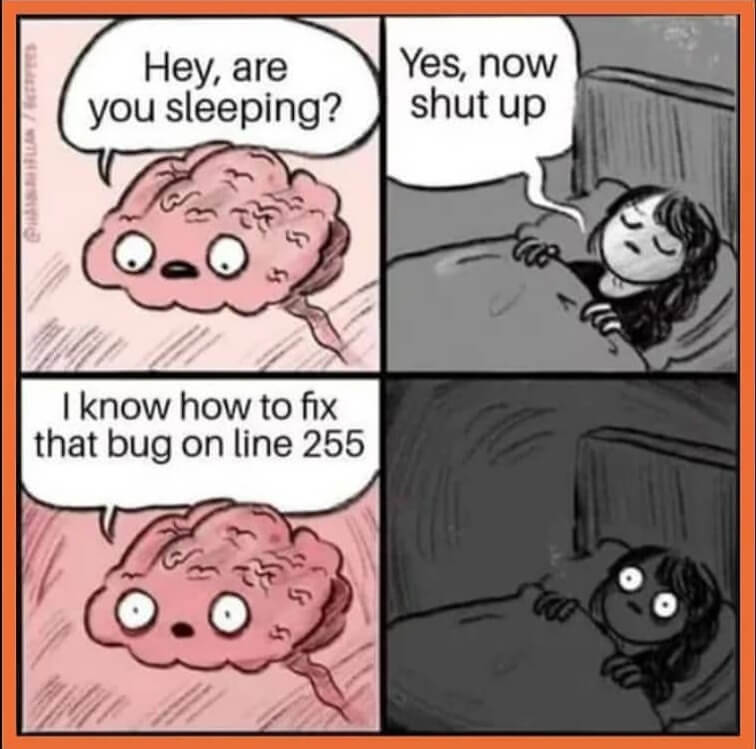
Starting a career in coding: A guide for women
What does a coder look like? Well, as Kate Rabinowitz once said, “contrary to popular stock photo lore, you do not need to be a white man with glasses to be a good coder”. Unfortunately, there are lots of misconceptions about coding which can contribute to the underrepresentation of women in the field. Silvia Rebelo, a front-end developer, said, “People tend to think it’s too complicated and involves lots of numbers – but being a developer actually requires many non-technical skills like problem-solving, creativity and teamwork”.
Coding is a very dynamic field; there are many different coding languages which power our digital world. It’s widely used in our everyday lives for websites, smartphones apps, traffic lights and even microwaves. There are always new technological areas emerging, such as robotics, virtual reality, cryptocurrency, computer vision, and many more.
The demand for coders is growing as developers shape the modern technological world. According to the State of the Developer Nation report, there were 26.8 million active software developers in the world at the end of 2021. Experts predict that the number of developers will grow to reach 45 million by 2030.

We need more women in tech
Just 19% of the tech workforce in the UK are women, and just 3% of those are Black and Hispanic women, according to a report by TechNation that looked into the diversity of UK tech companies.
The tech industry is still heavily male dominated, which impacts beyond the workplace. The lack of women in tech means that they aren’t as involved in developing technology and products are delivered based on the perspectives of only one half of the population. For example, research by Caroline Criado Perez for her book, Invisible Women, found that speech-recognition software is trained on recordings of male voices, meaning Google’s version is 70% more likely to understand men. In order to create great products and to steer innovation that is truly representative of consumers, tech companies need to reflect this in their ethnic and gender representation in the workforce.
This gender imbalance in technology also represents a missed opportunity for businesses. Having more women in tech and leadership roles has been shown to yield better results for companies both financially and culturally. According to a Catalyst study, companies that have women in leadership roles see a boost in their return on equity by 35%. Diversity brings about more innovation and collaboration, and higher success rates.
Why aren’t there more women in tech?
Women aren’t entering into coding jobs at the same rate as men, and there can be many reasons attributed to this.
Many tech companies are run by men, and there’s a clear lack of female role-models. 78% of students can’t name a famous female working in tech, and 97% of women in their late teens and early 20s say a technology career wouldn’t be their first choice, according to a PwC UK research report. This isn’t surprising considering just 5% of leadership positions within the technology sector are held by women.
A lack of representation for women discourages young girls from pursuing careers and succeeding in the field. This also causes the issue of stereotyping what a career in tech looks like and who is suitable to pursue such a career. With this in mind, it’s not difficult to see why the tech space can be interpreted as a male space with a ‘brogrammer’ work culture in which women do not belong.
Alongside the unequal work culture, the gender pay gap affects the careers of women in tech. Although not an issue unique to tech, women can face challenges with gaining pay rises and promotions, often feeling overlooked or not having confidence in their own abilities. It’s important to be aware of these issues and have transparency when it comes to reporting. Here at Reddico, we’ve recently published a Gender Pay Gap report to reflect on our own progress.
Reddico also has a different system when it comes to promotions and progression. All employees work with a career matrix system, which provides clear goals tailored to your role, to achieve in order to progress and be promoted. This works alongside a soft skills matrix for mid-weight and senior level promotions. Having a system like this provides a pathway to promotion that can be evidenced, regardless of gender. This is one way to tackle any potential bias and can give employees confidence in their abilities and what they have achieved. When the employee feels ready, they can submit their request for a pay rise to a panel for internal review. They take into account your performance, career matrix progression and feedback from those you work closely with.
Many other businesses are trying to address the gender imbalance issue and hundreds have signed up to the Tech Talent Charter. This government-backed initiative sets out to drive inclusion and create a more diverse workforce within tech. Big names in the tech industry have signed up, including Capgemini, Lloyds Banking Group, Vodafone and many others.
Although there are clearly gender imbalance issues that need to be addressed and more work needs to be done, a career in tech has lots to offer young women. Learning to code is a great path into the industry as it can open up lots of different doors. It can also be learnt completely at home, and there are plenty of free courses and tutorials out there to get started, making it one of the most accessible routes into the sector.
Learning to code can be overwhelming at first; there’s lots of new languages and syntax to get your head around. However, fundamentally coding is about logic and problem solving, which is something we can all apply regardless of gender.
What does coding day-to-day look like?
Your typical day will most likely depend on what sort of coding you are doing. Coding comes in many forms, such as website development, app development, software engineering, etc, although they have commonalities with each other when it comes to routine and process. In the simplest terms, you code, you test, you deploy your code, you monitor your code to make sure it is working properly, and in between that you may have meetings to discuss progress or new features.
You may be given a brief of what you are required to build from your work or a company, or you may want to build your own project. Coding gives you the freedom to explore and make products for yourself, to help others, or even to make money from. The possibilities are endless. Programming can be used to create experiences, as well as functional products. Art can be expressed through creative coding, where the goal is to create something beautiful instead of something functional. Programming's versatility allows it to manifest itself as digital paintings, data visualisations and other artistic purposes.
Coding will always be a continual learning process. It’s also very collaborative. Even if you are physically working on your own, it’s still a team sport. It’s okay to look up solutions to problems on the internet and ask questions on forums like StackOverflow to find answers. Sometimes coding is writing a function from scratch, sometimes it’s repurposing code you’ve found elsewhere. There are often dedicated forums and communities for different coding languages, with developers more than happy to help and answer questions and provide support (e.g. Learn programming forum on Reddit and various Discord communities).
There is also pair programming, which is when you work with someone on your team on a problem that either you need help on or that you both are solving together. This is especially useful when you are a junior learning from a more senior member of the team. There’s usually someone who’s the “driver” and then someone who is in the “passenger seat”.
Codepen is a great source of inspiration and it’s good to look at examples of how others have achieved their coding challenges. It’s an opportunity to learn different ways of coding, as there are so often different ways to achieve an outcome that you hadn’t thought of before.
What skills do you need to get into coding?
A career in coding is not all about technical knowledge; there are many interpersonal skills and traits that make a good coder:
Problem solving – You’ll constantly be faced with challenges, which is the very nature of coding. You don’t necessarily have to have all of the answers right off the bat and, spoiler, you probably won’t know at first, but part of the problem-solving process is using the resources available to you to seek out those answers.
Creativity – When you think of coding, creativity might not be the first word that springs to mind. You need to be an innovative problem solver and find creative solutions.
Resilience – Coding builds your resilience to change and ability to overcome challenges. If you want to push yourself and learn, you’ll make mistakes and need to accept criticism.
Adaptability – You’ll have to consider things from various viewpoints, adapt to the needs of users, as well as adapt to different technologies and programs.
Communication – Coders often work in teams, so it’s important to be able to discuss solutions and write code that others can understand and maintain. You will also need to explain complex topics and how your code works without using technical jargon.
There are a range of technical skills to learn from programming languages, computer science concepts, coding tools and editors.
What are some good coding habits?
When you start coding, you’ll want to get into good habits and best practices. The aim is to write code that is as readable as possible – it is key to maintainability and working together with a team. Here are some best practices to get started with:
Comment your code – When code can’t explain itself, comments should step in. They provide context so that another developer or even your future self can understand what that code is achieving.
Show someone your code – It’s always good to get a fresh pair of eyes on your code that can spot things you may have missed. They can also suggest new ways of doing things or how to improve your code, so it’s a great learning opportunity.
Put your code in a repository – You’ll want to keep backups of your work in repositories like Github which can provide a platform for version control and collaboration.
Plan before you code – There are different approaches you could take when it comes to building a project. A good place to start is to break down the project or feature into separate parts and think about what each part needs to do. You could create a to-do list on Trello or using sticky notes.
Some advice when getting into coding
Choose a good code editor – Choosing a code editor is a matter of personal preference. A recommended code editor to get started with is Visual Studio Code, which is also the most popular editor according to a recent survey by Stack Overflow.
Step out of your comfort zone – Challenge yourself with opportunities that help you grow professionally.
Seek out mentors – A mentor can guide your learning path and provide additional learning resources that come from experience. Join communities and connect with others in the industry. Don’t be afraid to ask questions.
Take plenty of breaks – Coding can be quite taxing mental work, so it’s important to take breaks and come back to issues with a clear mind.
Combat that imposter syndrome – Studies indicate that up to 70-82% of people experience the imposter syndrome at some point in their life. It is also more likely to affect women and especially minority women. Here’s some advice on how to deal with imposter syndrome and self doubt.
You’ll come across things you don’t know and challenges you’ve never faced before. Sometimes things will go wrong that you never anticipated. But of course, every developer has faced this, which is why there are memes depicting these scenarios!

Sometimes you’ll need to go away and think about a problem and come back with a fresh perspective. And strangely, the answer may come in the middle of the night!

Why choose a career in coding?
In a world that is becoming increasingly digital, learning to code can open many doors, regardless of the industry you want to work in. The tech industry is constantly evolving, highly demanding and an exciting field to enter.
High income potential – Developers are in high demand all over the world and companies are willing to provide attractive salaries for them.
More job opportunities – Technology is a growing trend across a variety of industries like medicine, banking, education, etc. Coding is a fundamental skill that opens up career paths.
Flexibility – Coding is a discipline that can be done from home, which opens up work-from-home opportunities as well as freelancing options.
You don’t need a degree – There are multiple ways to learn on your own, including studying online, doing bootcamps, earning certifications and following tutorials.
Generate innovation – Have you ever faced issues with products or tech that just weren’t suited to your needs? Well, you have the power to change that. With a career in tech, you can drive the design of tech to meet the needs of society.
Positively impact future generations – Be a role model for young girls.
There are multiple pathways you can choose to start a career in coding. Hear advice from female self-taught programmers on how to get into the industry and their own learning journey.
There are lots of resources out there to help you to learn and connect with others in the industry. If you’re completely new to coding, you probably won’t know which direction you want to initially go in, and that’s okay. It can sometimes be best to start with learning a coding language and go from there. According to a recent survey by Stack Overflow, 2022 marks JavaScript’s tenth year in a row as the most commonly used programming language. However, of those asked that are learning to code, HTML/CSS is the most popular.
You may gravitate towards building websites, or have more of an app-focused idea, or you may want to start building a game!
Resources to kickstart your career in coding
Learn to code
Freecodecamp: Learn to code completely for free with thousands of articles, videos, guides and interactive tutorials.
Codewars: A brilliant resource to practise your coding skills no matter what level you are. Coding challenges are available for over 55 programming languages and it has the fun element of earning ranks.
CodinGame: Fun exercises to practice your coding skills, and you can even challenge your friends.
Khan Academy: A free resource to guide you through concepts in computer programming with articles, challenges and tips.
Rithm School Free Courses: These free courses can teach you the fundamentals in coding as well as more advanced concepts. It also has courses to teach you how to use tools like Git.
Communities to join
Codebar: Codebar offers free weekly coding workshops for those under-represented in the tech industry. They have experienced developers who can coach you in a supportive environment.
Django Girls: A nonprofit that inspires women to program through Python and Django workshops, online tutorials, resources and community support.
Girls in Tech: Discover inspiring programs, blogs, podcasts and a diverse community to help you excel in the world of tech.
Be inspired
Podcasts for Women Who Code: Listen and learn from women in tech with these podcasts on tech, work-life balance, and more.
Girls in Tech Podcasts: Listen to interviews with women who are shaping the future.
Books to Read for Women in Tech: These books provide industry insight, career advice, leadership inspiration and more for women in tech.
Black Women Tech Influencers use Social Media to Inspire: These influencers in tech are making waves online by providing tips, resources, and advice on how to break into the industry successfully.
Codepen: Be inspired by other developers' creations in this playground for web development.
Sign-up to Reddico News
To keep up-to-date with the latest developments in the world of SEO, our insights, industry case studies and company news, sign-up here.





